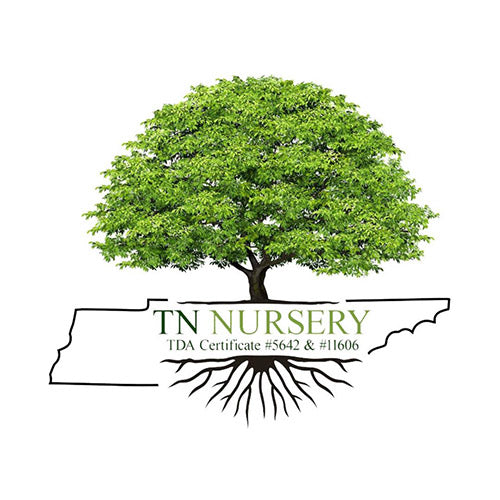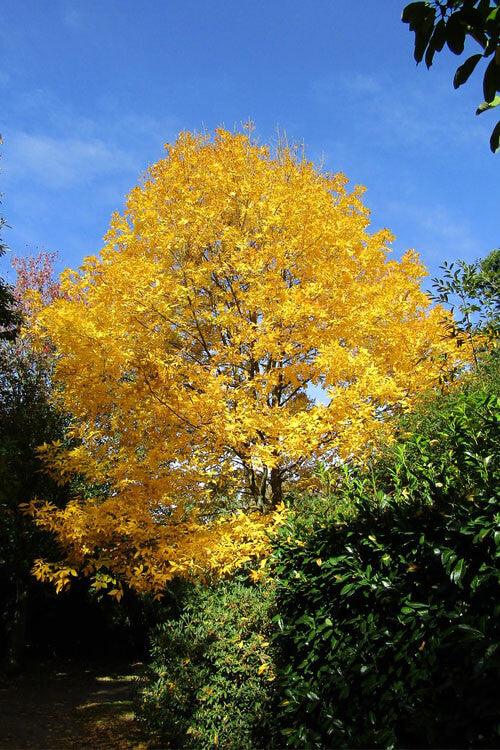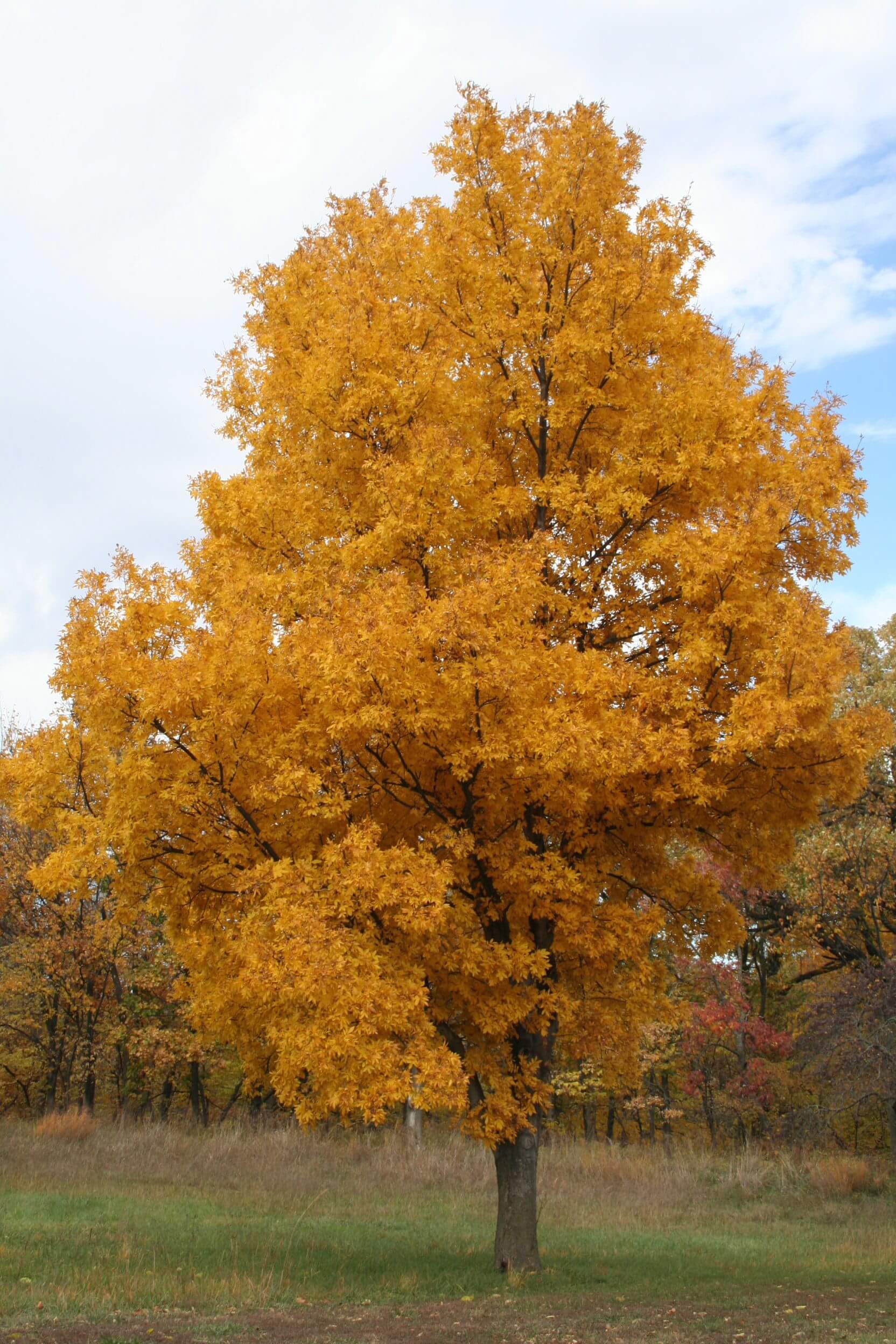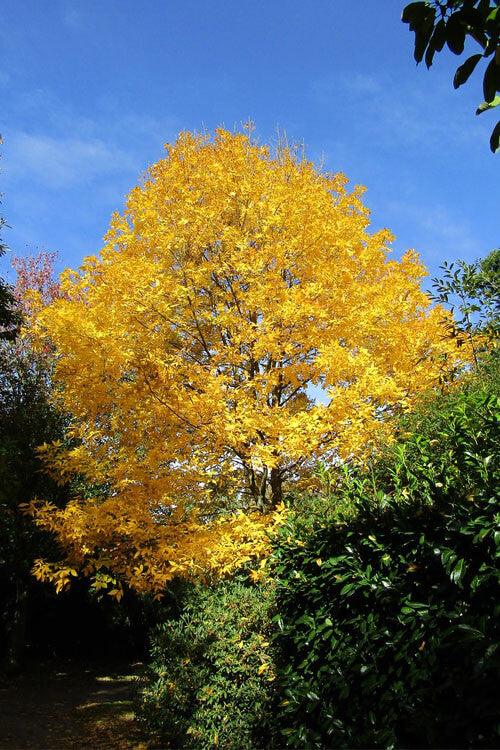
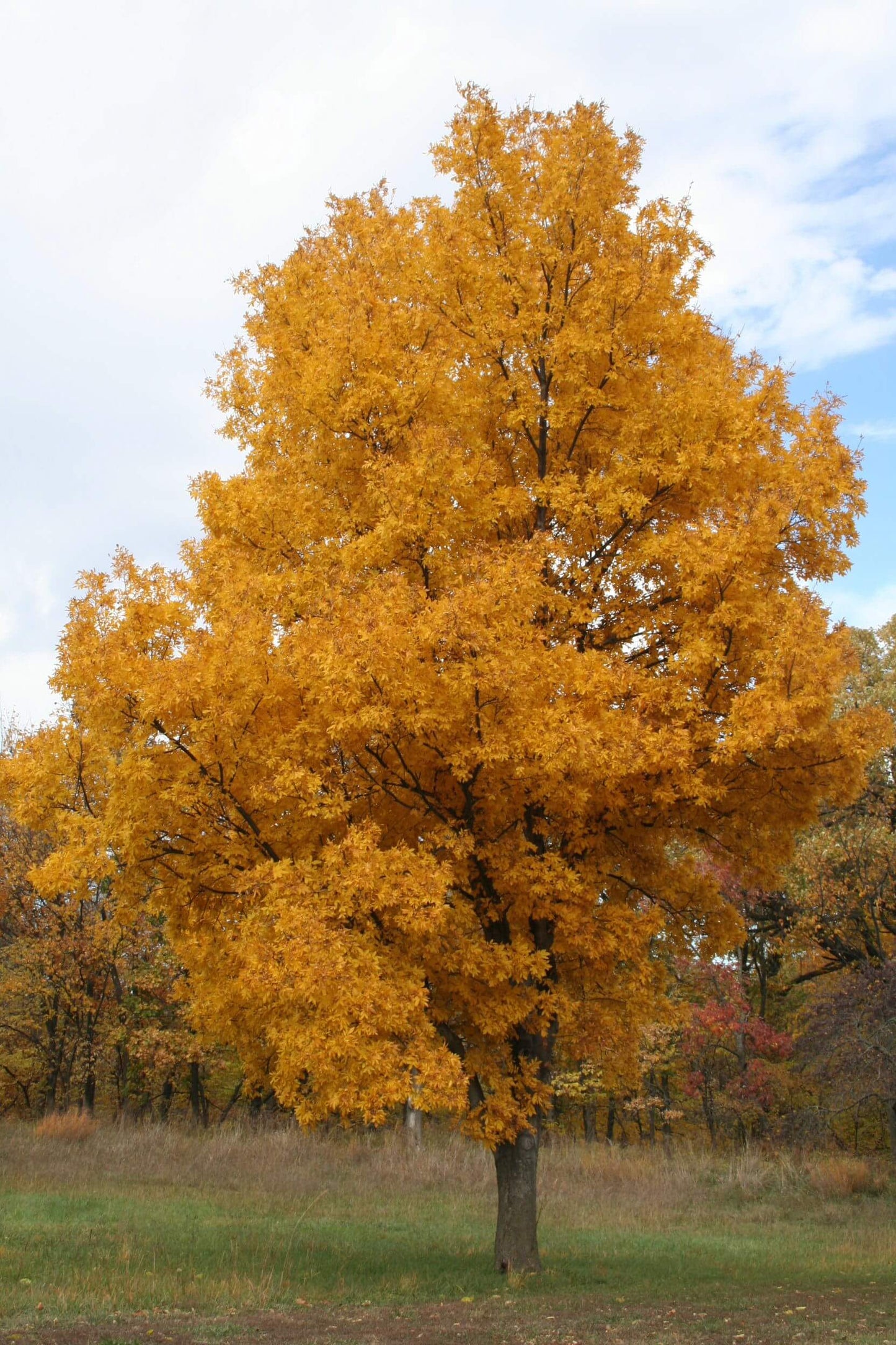

The Hickory tree is a making up the genus Carya (ancient Greek known as nut) includes 17 to 19 species. Almost 12 of the species and native to the United States and the rest of the species (5-6) are native to China, (India (State of Assam), Indochina. Also, approximately 2-4 of the species are found in Canada and four of the species are found in Mexico. Large nuts, pinnately compound leaves are common components of deciduous trees and they are deciduous trees.
Hickory Tree Have Stunning Flowers
Spring time is when the flowers form, these yellow-green flowers are small. The flowers are self-incompatible and are some pollinated. The fruit of the tree is known as globose or oval nut, which is enclosed within a four-value husk and at maturity it splits open. The nut shell of the tree fruit is bony and thick in most species and some are thin, and known as the pecan. In addition, when the fruit seed germinates, it splits apart in to two halves.
Hickory Tree Produces Nuts
The the lead stem of the tree is known as gall phylloxera (Phylloxera caryaecaulis) and uses the tree as a source. Aphids and Phylloreridae have a similar complex life cycle and in the early spring the eggs hatch and galls are quick to form near developing insects. Usually harmless, Phylloxera galls have the ability to stress or weaken Hickories.
The spring time is when twigs and malformed leaves may fall as small animals may break off infected tissue. Curculio (Conotrachelus elegans) also known as the pecan gall a weevil species gets on galls on the tree leaf stem hall phylloxera.
Hickory Tree Has Very Hard Wood
Shock resistant, stiff, very hard and dense are words used to describe Hickory wood. When it comes to the commercial use of wood, it is the choice because of the combination of stiffness, toughness, strength and hardness.
- Choosing a selection results in a full page refresh.
- Opens in a new window.
